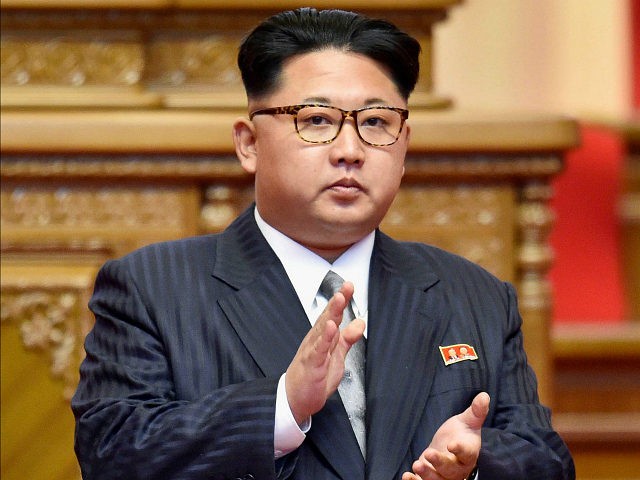Beijing’s message to the Trump administration that it would take an active role in diminishing tensions on the Korean peninsula has apparently reached Pyongyang. North Korean officials have reportedly not responded to requests from the Chinese government to meet for diplomatic talks.
Bloomberg cites “people familiar with the situation” confirming that two high-ranking Chinese officials – Foreign Minister Wang Yi and top Korean affairs diplomat Wu Dawei – had reached out to North Korean officials hoping for dialogue. The officials did not receive a response.
The effort appeared to be related to both President Xi Jinping’s meeting with President Donald Trump in Florida this month and with Chinese officials’ meetings with South Korean diplomats to discuss the situation on the peninsula.
Bloomberg notes that the lack of response from Pyongyang may not necessarily set a new precedent, as “it’s unclear how often Chinese officials request to visit North Korean counterparts, and how often they don’t get a response.”
During the Chinese Foreign Ministry’s regular press conference Monday, spokesman Lu Kang did not answer whether the Chinese government sent an envoy to Pyongyang’s military parade Saturday. The parade took place on the “Day of the Sun,” a major North Korean holiday celebrating the birthday of dictator Kim Il-sung, founder of the communist DPRK. “We have said from this podium that China and the DPRK are friendly neighbors. The two sides maintain the tradition of friendly exchanges,” he responded to a reporter asking which Chinese official had attended the parade.
Lu also appeared to deny that Wu Dawei had visited North Korea over the weekend for bilateral discussions; such a visit would negate the Bloomberg report. “I wonder where you got that information,” Lu responded to a reporter’s inquiry.
Of the United States, Lu said Chinese officials “welcome the positive role played by the US, one of the most important parties in this issue.” “We would like to remain in close communication with all relevant parties including the US to jointly contribute to realizing denuclearization of the Korean Peninsula, maintaining peace and stability of the Korean Peninsula, and resolving the Korean Peninsula issue through peaceful negotiations,” he concluded.
Vice President Mike Pence is currently in South Korea to discuss, among other issues, the North Korean crisis. In a speech from the Korean demilitarized zone (DMZ), Pence warned China that the United States will not coexist with a nuclear North Korea. “Either China will deal with this problem or the United States and its allies will. We want to see change. we want to see North Korea abandon its reckless path,” he said.
Also this week, Trump administration National Security Adviser Lt. Gen. H.R. McMaster, in remarks to ABC News, said he believes the Chinese government had become part of an “international consensus” that the status quo on the Korean peninsula could not persist.
Wang, the Chinese foreign minister, had harsh words for North Korea during a press conference last week. Rather than insisting the United States must stop joint military exercises with South Korea, Wang made clear North Korea was just as much a belligerent party in the dispute. Given China’s status as North Korea’s largest trading partner and diplomatic ally, his remarks appeared to indicate that Chinese policy regarding North Korea was changing.
“There has been heightened tension between the United States, the Republic of Korea (ROK) and the Democratic People’s Republic of Korea (DPRK). This precarious situation deserves our attention and concern,” Wang warned. “If war breaks out on the Korean Peninsula, multiple parties will lose and no one will win.”
Following Xi’s in-person meeting with Trump, China also moved to limit its ties to the rogue fellow communist regime. Chinese officials forced a North Korean cargo ship to return home carrying coal, an attempt to enforce United Nations trade sanctions against Pyongyang. Reports also indicated that China placed 150,000 troops on its border with North Korea in anticipation of the “Day of the Sun.”

COMMENTS
Please let us know if you're having issues with commenting.